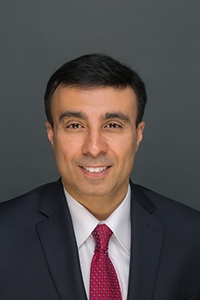Dec 14, 2018
From avoiding energy to ‘not buying Amazon’: Money managers reveal best and worst decisions in 2018

To say that 2018 was a volatile year for the markets and geopolitics is an understatement. Between the China-U.S. trade tensions, uncertainty over the new North American Free Trade Agreement, concerns about Canada’s competitiveness and the country’s beleaguered energy sector, investors have been navigating a number of headwinds.
Below, BNN Bloomberg speaks with five Canadian portfolio managers about their year-end takeaways and predictions. They discuss their best and worst investment decisions for their clients this year, and what’s to come in 2019.
(Interviews have been edited and condensed for clarity.)
 Diana Avigdor
Diana Avigdor
Vice-president, head of trading and portfolio manager, Barometer Capital Management Inc.
Best investment decision for clients
“Microsoft Inc. Fundamentally, Microsoft has been growing its cloud businesses and transitioning to a software-subscription model. We found its growth and future operations strategy to be attractive, which is supported by share repurchases and a growing dividend. We believe that due to significant strength in its fundamental business and shareholder strategy, coupled with positive signals on our models, we are quite bullish on Microsoft.
“Its public cloud business has been growing strongly, up 90 per cent year-over-year, which goes along with its increasing cloud margins, up 600 basis points. Microsoft’s ability to execute on its cloud strategy and software-as-a-service model has resulted in beats on estimates, driving the stock.”
Biggest investment regret
“Oasis Petroleum. Our research models were becoming positive on the energy sector, and thus we decided to go long on energy names that were growth-oriented. In the first half of 2018, the North Dakota Bakken differential was much more attractive than the Permian differential because the Bakken was less pipeline-constrained. We decided we wanted to go long on the names with exposure to North Dakota Bakken, and thus we took a position in Oasis as it was to benefit from the stronger differential compared to the Permian.
“Following the excess inventory increases in recent months, all oil differentials were hurt, resulting in a decline in Oasis’ stock. Due to our disciplined approach utilizing stop losses, we decided to exit our position in order to minimize further losses.”
Big prediction for 2019
“All throughout 2018, in times of market selloffs, the metrics that go into our investment decisions have stayed positive. After the November correction, a number of the short-term metrics we look at turned back up, whereas the long-term indicators have never turned down. This makes us believe that the current evidence is pointing to a correction in an upward market in the U.S. Thus, we will continue to stay invested in the Barometer portfolios until such time that the evidence points to the contrary.
“We do not foresee a global recession at this point. Therefore, without a recession, there is no reason for a bear market to ensue. We continue to prefer companies exhibiting growth and dividend payers with dividend growth.
“At this point, we continue to prefer U.S. over Canada in a majority of sectors. However, we recognize that Canada may at some point benefit from incoming flows, especially as valuations moderate to levels where some sectors may benefit. We will be watching for opportunities as they arise. It remains to be seen what will repair the Canadian energy market as that will be a very important real driver of money flows to Canada. Government support and business friendliness will have to be part of that solution.”
 Anish Chopra
Anish Chopra
Managing director and portfolio manager, Portfolio Management Corporation
Best investment decision for clients
“Pfizer. As a result of rising market volatility in 2018, investors gravitated towards less economically-sensitive stocks such as Pfizer. In addition to being a beneficiary of this trend, Pfizer also grew its product portfolio in 2018.”
Biggest investment regret
“Not having even higher cash balances than we did. In a declining market, cash is a valuable asset. Higher levels of cash both reduce volatility, which returned to the markets in 2018, and serve as a strategic asset to capture opportunities that present themselves when market volatility rises.”
Big prediction for 2019
“U.S. equity markets will perform more in-line with other global markets. For almost 10 years, U.S. equity markets have substantially outperformed the rest of the world. It is unlikely that this trend will continue.”
 Barry Schwartz
Barry Schwartz
Executive vice-president and chief investment officer, Baskin Wealth Management
Best investment decision for clients
“Investing in U.S. stocks. Not only did our clients benefit from outperformance of U.S. stocks (one of the few asset classes that is in positive territory year-to-date) but they’ve also benefited from a weaker loonie, which has made foreign assets more attractive when converted to Canadian dollars.”
Biggest investment regret
“Not buying Amazon at the beginning of the year. We couldn’t come to grips with its valuation but we missed the fact that its cloud business is a global giant and its growth is still in the early innings.”
Big prediction for 2019
“We believe that the North American economy is neither so good that interest rates will rise too far, nor is it so weak that a recession is imminent. Just as it has in the last 10 years, we believe that the North American economy will continue its slow ascent and will suffer its usual fits and starts. We continue to overweight U.S. equities.”
 Christine Poole
Christine Poole
CEO and managing director, GlobeInvest Capital Management Inc.
Best investment decision for clients
“Avoiding Canadian producers. The weighting of energy producers in clients’ overall portfolios range from zero per cent to one per cent.”
Biggest investment regret
“I don’t have any significant investment regret. We regarded the market pullbacks in February and October as corrections within an ongoing bull market, e.g. 10 to 15 per cent corrections are not uncommon. The underlying fundamentals of the U.S. economy was/is solid and the economic indicators we follow did not suggest a recession on the horizon. Recessions are what end bull markets.”
Big prediction for 2019
“U.S. equity markets will be higher at the end of next year compared to now, supported by higher corporate profits in 2019 versus 2018. While the rate of profit growth (likely) peaked in 2018, higher earnings in 2019 should be constructive for equities.”
 Jeet Dhillon
Jeet Dhillon
Vice-president and senior portfolio manager, TD Wealth Private Investment Counsel
Best investment decision for clients
“Given the headwinds in the equity markets (slowing global growth, trade tensions, etc.), our portfolios were positioned with a neutral stance in equities. This was beneficial during the heightened market volatility experienced in the latter part of the year.
“Several central banks moved to a more neutral monetary policy zone by raising rates. To mitigate the headwinds we foresaw in the fixed-income space, our portfolios benefited from shorter-duration exposure.”
Biggest investment regret
“Perhaps not reducing energy exposure enough.
“However, the majority of energy exposure in our portfolios comprises of high-quality integrated oil and pipeline companies, which are less sensitive to oil prices than pure oil producers. Energy companies with strong balance sheets and corporate fundamentals are better equipped to weather the temporary downdraft and should deliver good risk-adjusted total returns over the long run.”
Big prediction for 2019
“With heightened market volatility, we will continue to focus on high-quality equities that have the ability to increase their earnings and dividends in a low-growth environment and thereby protect the real value of investors’ savings. The U.S. remains our favourite equity market globally.
“Given the negative and pessimistic view on the Canadian market, specifically the energy sector, we could potentially see a strong bounce back next year.
“Regarding the fixed-income market, we believe that active credit analysis will be key as we enter the mature stage of the credit cycle. Higher rates and slightly wider spreads mean that investment-grade corporate bonds can provide real (after inflation) returns. We maintain a strong preference for the quality end of the spectrum given rising rates and signs of stress at companies with weak balance sheets. Our overall preference is a diversified allocation to high-quality, investment-grade corporate bonds and domestic government bonds.”








